Blog
Keeping you up to date on the progress of the Named Person scheme and the NO2NP campaign.
Book now: Special one-off NO2NP national gathering in March
Posted 7 years agoNO2NP will be holding a one-off special event, Named Persons: Doomed… or just delayed? in Edinburgh on Monday 20 March, 11:00am – 1:15pm.
Named Persons: Doomed… or just delayed?
Monday 20 March 2017, 11am – 1:15pm
John McIntyre Conference Centre, Edinburgh
BOOK NOW FOR THIS FREE EVENT
Do you want the unique opportunity to question the QC behind the Supreme Court legal challenge?
Would you like to be clear about your legal rights following the Supreme Court judgment and get equipped to take action in your community?
Do you want to know how to make MSPs more responsive to the concerns of parents?
Then come along to this one-off free event and hear from key figures involved in opposing the Named Person scheme; including legal experts, parents and key members of the NO2NP campaign. BOOK NOW
Speakers will include:
- Aidan O’Neill QC – Leading human rights lawyer who acted on behalf of parties to the successful Named Person legal action
- Jim Sillars – Former deputy leader of the SNP, who said the Named Persons legislation was “riddled with ambiguity”.
- Kevin McKenna – Columnist regularly featured in The National, The Herald and The Guardian, who has warned against the “deeply flawed” Named Persons legislation
- Maggie Mellon – Independent social work consultant
- Dr Stuart Waiton – Sociology and criminology lecturer at Abertay University
Named Person law undermines parents by focusing on trivia
Posted 8 years agoGuest blog by Dr Stuart Waiton
Defenders of the Named Person law often claim (1) it doesn’t undermine parents and (2) it will help stop cases of serious child abuse or neglect.
But the Policy Memorandum on the new law explained that the role of the Named Person is, ‘based on the idea that information on less critical concerns about a child’s wellbeing must be shared if a full picture of their wellbeing is to be put together and if action is to be taken to prevent these concerns developing into more serious issues’.
The Named Person and all professionals dealing with children and families are to be educated about the importance of early intervention. Early intervention necessarily means professionals share data and intervene in family affairs earlier than they used to. This necessitates a Minority Report type approach where relatively minor incidents are treated as ‘risks indicators’.
In the National Risk Framework document, it is explained that the ‘Named Persons, Lead Professionals and others then need to project the future probability or likelihood of harm and to determine if this harm is significant in nature or not. Projection of probable risk of harm significantly also means that there is a potential for error in terms of what we think may occur. This is no small task indeed’.
The incredibly broad category (if it can be called a category) being used to encourage data sharing is ‘wellbeing concerns’, a therapeutic and woolly terms that is being taught to professionals helped by the 308 wellbeing indicator list and the 221 risk assessment indicators. Health visitors are also being taught that they must check family finances, check for domestic abuse and to take a proactive ‘health creating’ approach with the ‘emphasis on wider family health’.
Here health no longer relates to the health of the child or infant as we would previously have understood it, but to a much wider idea of the ‘healthy’ family and the ‘healthy’ parent.
Some people, particularly it seems, family professionals and modern politicians, appear to think that ‘bad parenting’ is the cause and solution to almost all of society’s problems. They also appear to believe that parents are incompetent. The social mobility tsar, Alan Milburn thinks that four out of ten children are missing out on good parenting, for example, and David Cameron now tells us that all parents should aspire to have parenting classes.
Meanwhile, what a ‘child at risk’ means continues to expand to include more and more aspects of life that would previously have been seen as relatively unproblematic and certainly not something that should be the concern of professionals.
Professionals should be encouraged to use their judgement and experience to assess if a child is at serious risk of harm. Where this is not the case we should not be encouraging them to become risk managers of all children or wellbeing monitors of all aspects of their lives.
Stuart Waiton
Senior Lecturer in Sociology and Criminology, Abertay University.
NO2NP Roadshow roundup: Melrose, Broughty Ferry and Castle Douglas
Posted 8 years agoThe NO2NP Roadshow team has been really busy over the past week or so, clocking up three events in eight days (plus a great Action Day in between – more about that later in the week!). We’ve been responding to demand from various parts of the country to hold roadshow events in their area, so here’s a taste of what happened at these three venues:-
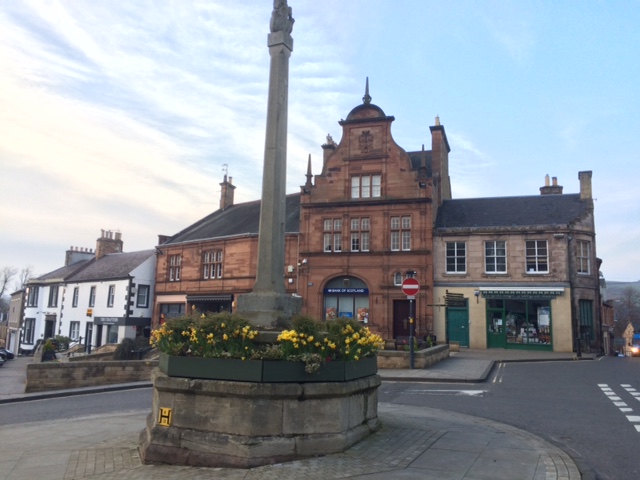
Melrose
Their first stop was the picturesque Borders town of Melrose on Monday night last week, when a good number of locals turned up to hear from the team.
Gordon Macdonald, Parliamentary Officer for CARE for Scotland, spoke about the reasons for the NO2NP campaign and referred to comments made online by Jim Terras, a Scottish Borders Council Training and Development Officer for Child Protection. Terras had remarked that he didn’t think the Government should be basing their opinions on the views of “fringe groups” opposed to the Named Person scheme, “who don’t really represent the general public”.

Gordon went on to point out that in a recent ComRes Poll, 64% of the Scots polled considered that the scheme was “unduly intrusive” into family life and 80% considered that the focus of child protection resources should be on truly vulnerable children and not every child.
We were then delighted to welcome Professor John Raven from Edinburgh to speak about his 50 years of academic experience in the areas of family, education and sociology. He said that parents are children’s most important educators in terms of instilling all the most important values in life, so having a Named Person to dictate what this should look like was quite wrong.
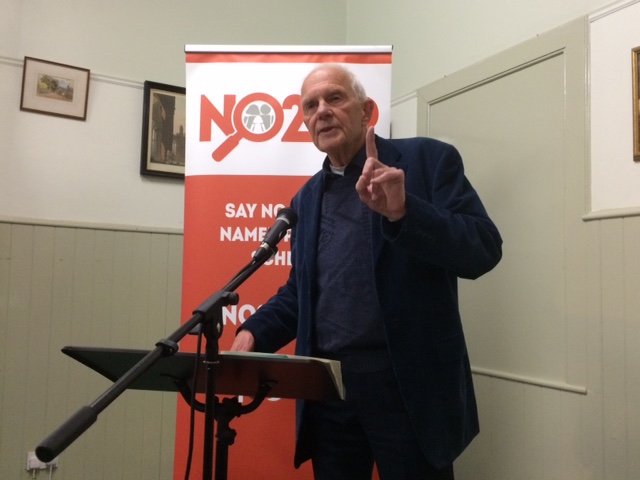
One of the things the Professor had noticed over his long career was the deprofessionalization of teachers, doctors and social workers by Government, who have increasingly imposed their own agenda on these professions. And now even parenting has been “deprofessionalized” under this scheme – in line with what is happening across society.
There was a lively Q&A, during which one mum asked the moving question: “Do the same people who failed my children so abysmally now think they can tell me they know better?”
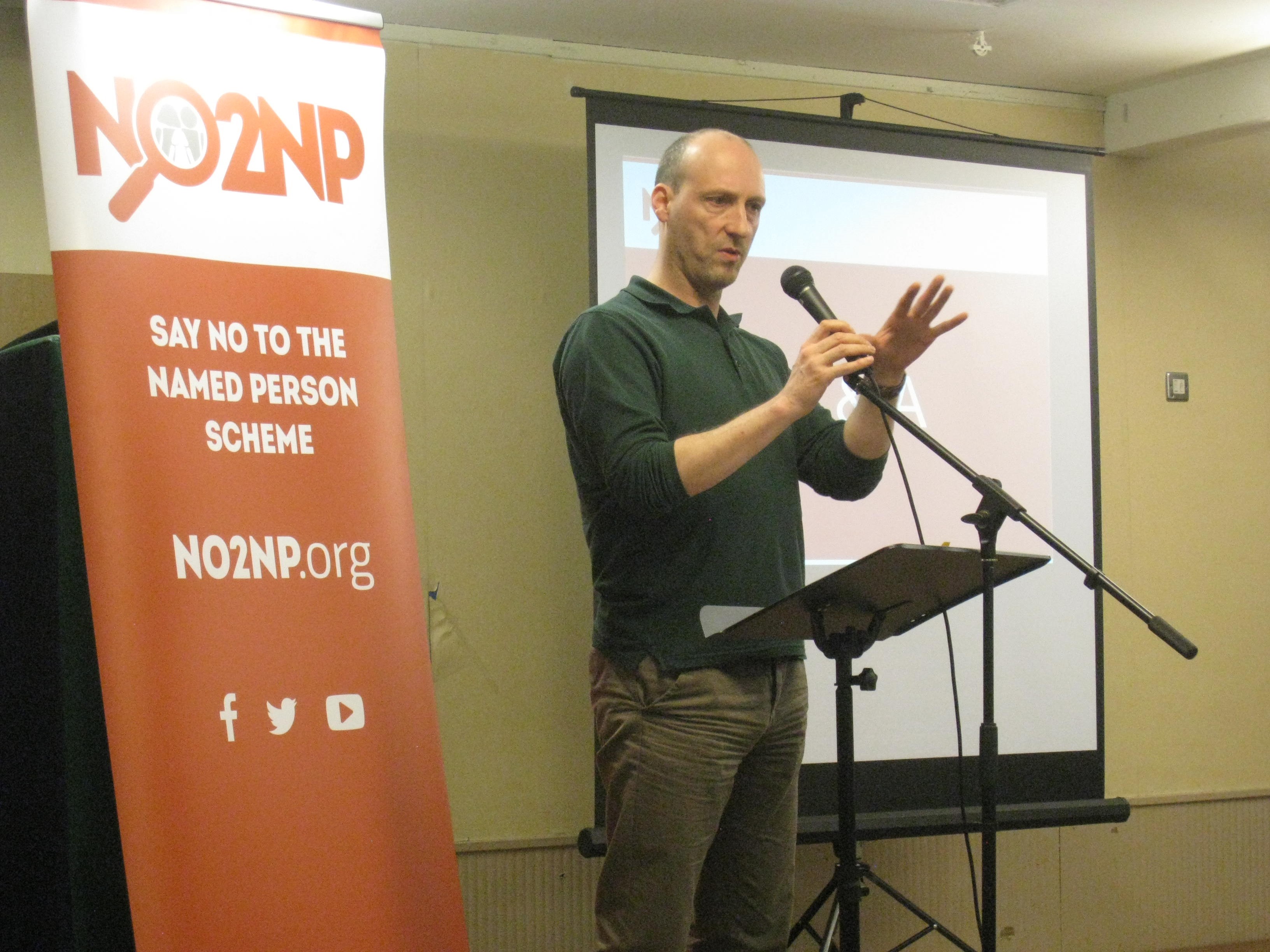
Broughty Ferry
The team’s next stop was Broughty Ferry last Friday to address a packed meeting at the town’s YMCA.
The meeting was chaired by Dr Stuart Waiton, a Sociology lecturer from Abertay University, who recently said that Tayside had some of the strongest opposition to the Named Person scheme. The passionate audience certainly had plenty to say, with one lady asking “What about the really vulnerable children? What will happen to them? They’ll go right down the list and be lost in the process!”
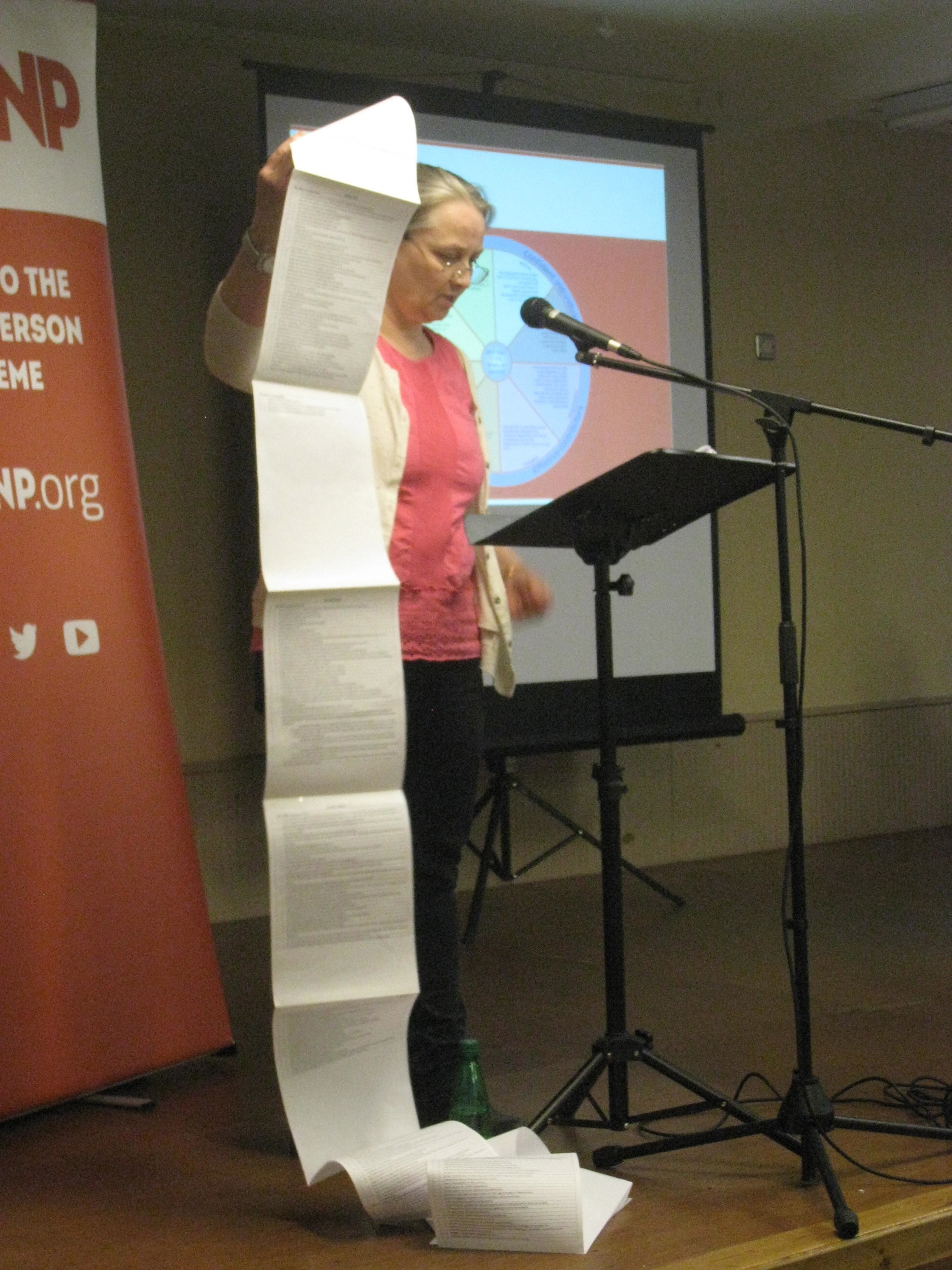
Lesley Scott from TYMES Trust set out how the Universal Health Visiting Pathway, due to be introduced on 31 August, will be a massive invasion of privacy for every young family in Scotland. A huge amount of sensitive information will be shared about their personal details, all intended to “promote, support and safeguard” the wellbeing of every child. However, the term “wellbeing” is nowhere defined in either the legislation or the guidance. This point was made in a video clip Lesley showed from a Holyrood debate last year, where an MSP in favour of Named Persons refused to answer a question about the definition of wellbeing, but instead ridiculed his colleague for asking the question.
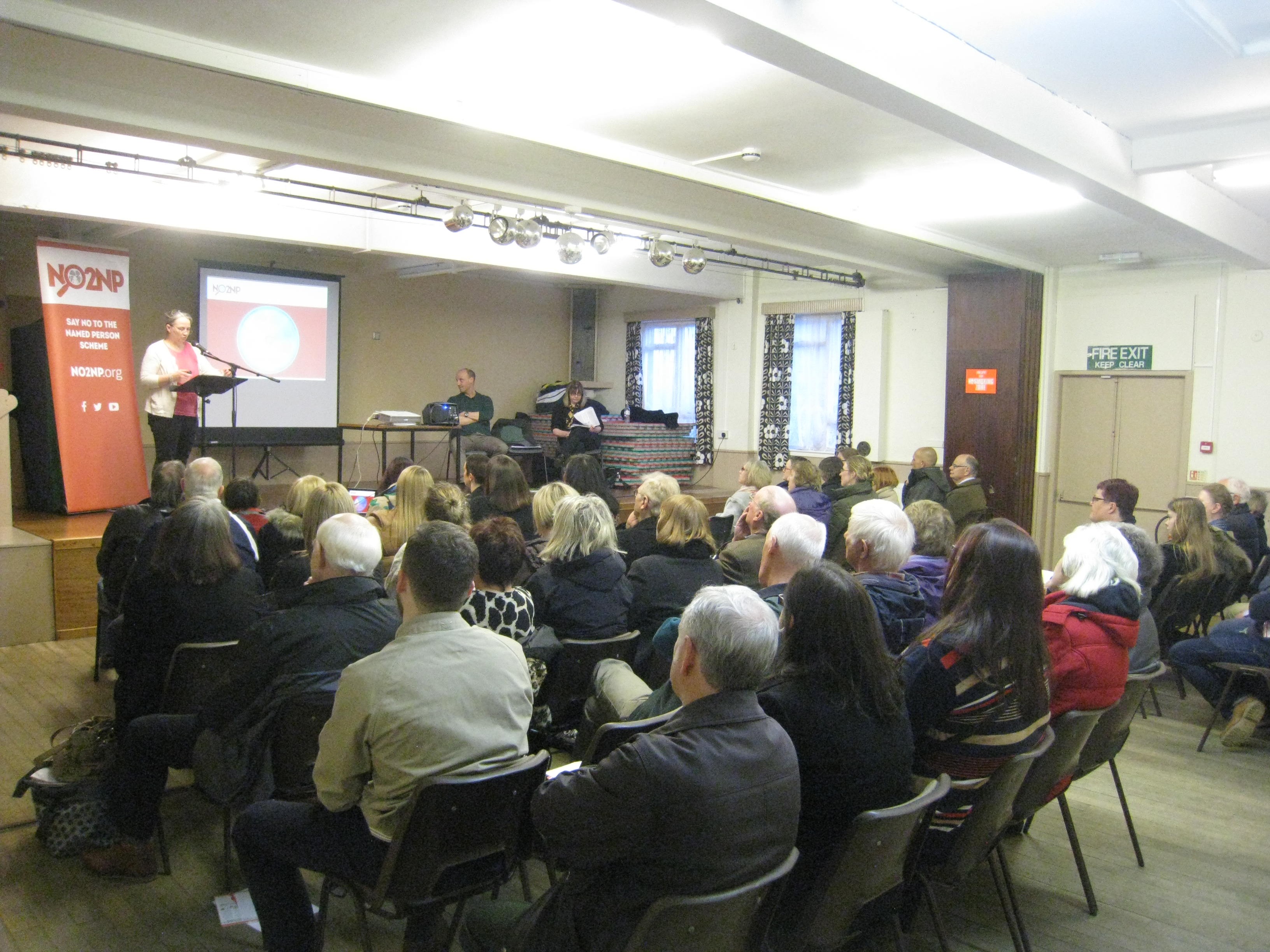
Lesley finished by saying: “Intervention is no longer about whether a child is at risk of significant harm, but rather whether the child is progressing in a manner the state regards as acceptable towards meeting outcomes set by the state.”
Alison Preuss from the Scottish Home Education Forum spoke about her background in elective home education and her experience in challenging breach of privacy law in various government schemes over the years.
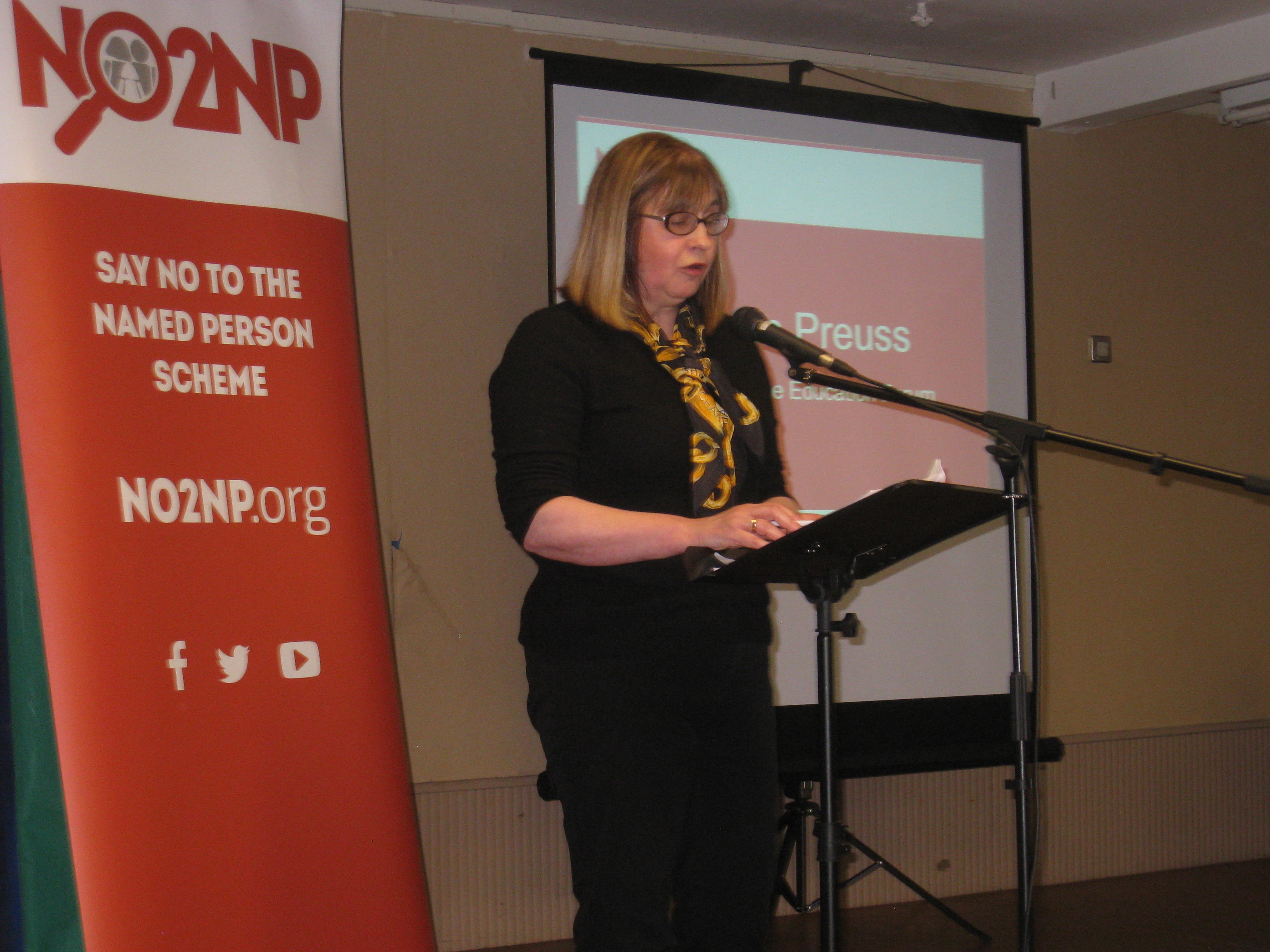
She made reference to the GIRFEC Cluedo article that appeared in the press recently. The aim of the game (used in training) is to get professionals to determine parents’ capacity to provide “wellbeing” by data mining without consent “at even the lowest level of concern”, as opposed to on child protection grounds. Alison went on: “Privacy is being systematically demolished on the basis of mere suspicion, allowing the state to call up a single view of any citizen at the click of a mouse, to more easily identify those of us in need of remediation”.
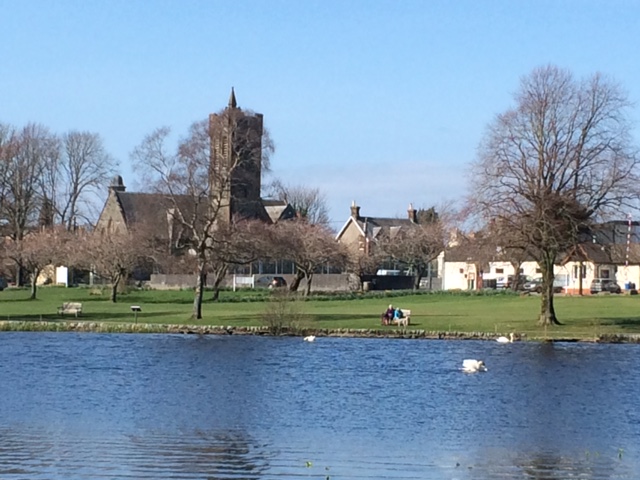
Castle Douglas
Then on Monday this week, the team traveled south to Castle Douglas, at the heart of scenic Dumfries and Galloway. The Christian Institute’s Nigel Kenny explained that one of the ways the Scottish Government planned to ‘teach’ young children the principles of “wellbeing” was by way of a snakes and ladders type game called On the Trail with the Wellbeing Snail.
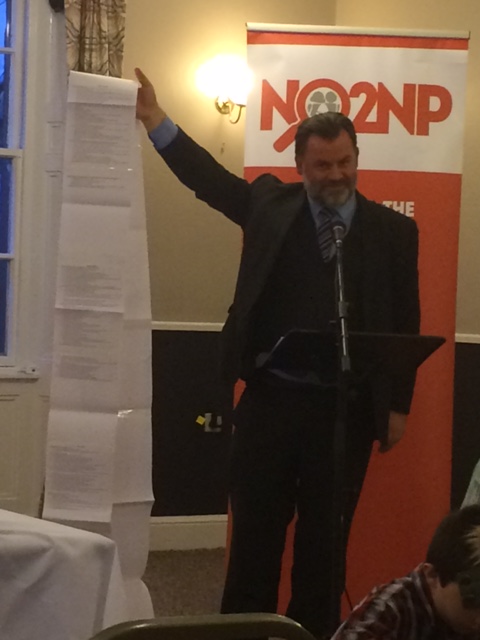
When Nigel explained that one of the cards for the game said that if you did not join the new after-school fencing club, you had to move back two spaces, one member of the audience asked us if we were making this up?! Not so, sadly. Others from the team mentioned the SHANARRI song and the GIRFEC Cluedo tool referred to earlier. The audience couldn’t believe that this was really happening! Nigel also pointed out that every named person would have to watch out for 222 risk indicators in each child or young person under their watch, which included: being under 5 years old, limited engagement by the parents and the parent having a different perception of the problem!
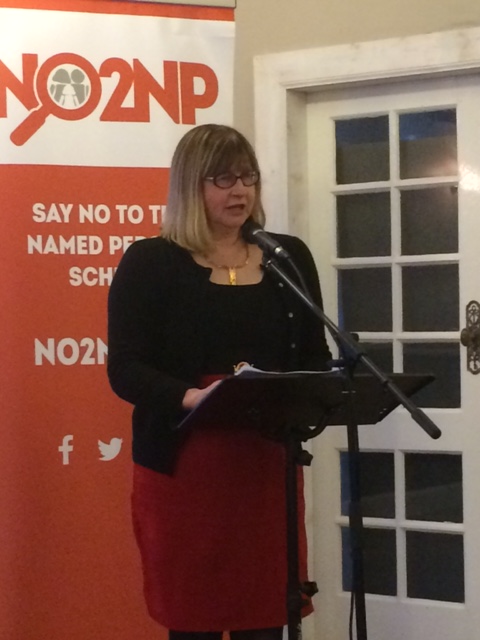
Alison Preuss said the acronym GIRFEC should really stand for Getting Information Recorded for Every Citizen. She pointed out that the principle of Named Persons was about being able to share sensitive data without the consent or even knowledge of the parents.
She highlighted datasharing concerns raised by a former UK Information Commissioner, Richard Thomas CBE, about an abandoned scheme similar to Named Persons, called ContactPoint. He said: “There are reasons why we need to promote better information sharing where children are at risk of harm, but whether the answer is to database every child in the country should be seriously questioned.”
Alison finished by quoting former US President Lyndon B Johnson, who once said: “You do not examine legislation in the light of the benefits it will convey if properly administered, but in the light of the wrongs it would do and the harms it would cause if improperly administered.” The Scottish Government failed to observe this principle, but NO2NP has been holding them to account throughout our campaign, highlighting the numerous problems with the legislation.
The NO2NP Team will be in Coatbridge on Wednesday next week. If you can join us, we look forward to meeting you!
Named Persons being ‘trained to suspect parents’, warns sociologist
Posted 8 years agoLeading sociologist and supporter of the NO2NP campaign, Dr Stuart Waiton, has strongly criticised the Named Person scheme and the Scottish Government’s GIRFEC approach.
He cautioned that “every single professional who comes into contact with children is being trained to be suspicious of parents”.
“Rather than using their common sense, their professional judgment and their basic humanity to recognise problems they are being educated to be risk averse, to think ‘safety’, and danger, and to intervene in a family’s life based on minor issues”, he added.
Dr Waiton, a senior lecturer at Abertay University, raised concerns that “the potential for gross interference” by Named Persons was “extraordinary”, and could “destroy” conventional rights to family privacy because the legislation makes a blanket assumption that all parents need state support.
His comments came as MSPs debated the Named Person scheme in Holyrood yesterday in response to a Conservative motion opposing it. Labour expressed some reservations around implementation, but largely endorsed the Government’s approach.
Liz Smith MSP, the Conservative’s Spokesperson on Culture, Sport and Young People, made the case to oppose the scheme, saying some police officers “feared by making it compulsory for every child, it will be much less possible to direct sufficient attention to those who need it most”.
Read more from Dr Stuart Waiton:
Submission to the Education and Culture Committee
NAMED PERSON LAW ‘DEGRADES THE VERY MEANING OF PRIVACY’
TESS ARTICLE: “UP CLOSE AND PERSONAL”
Video: Four key trends in society which have driven the Named Person plans






